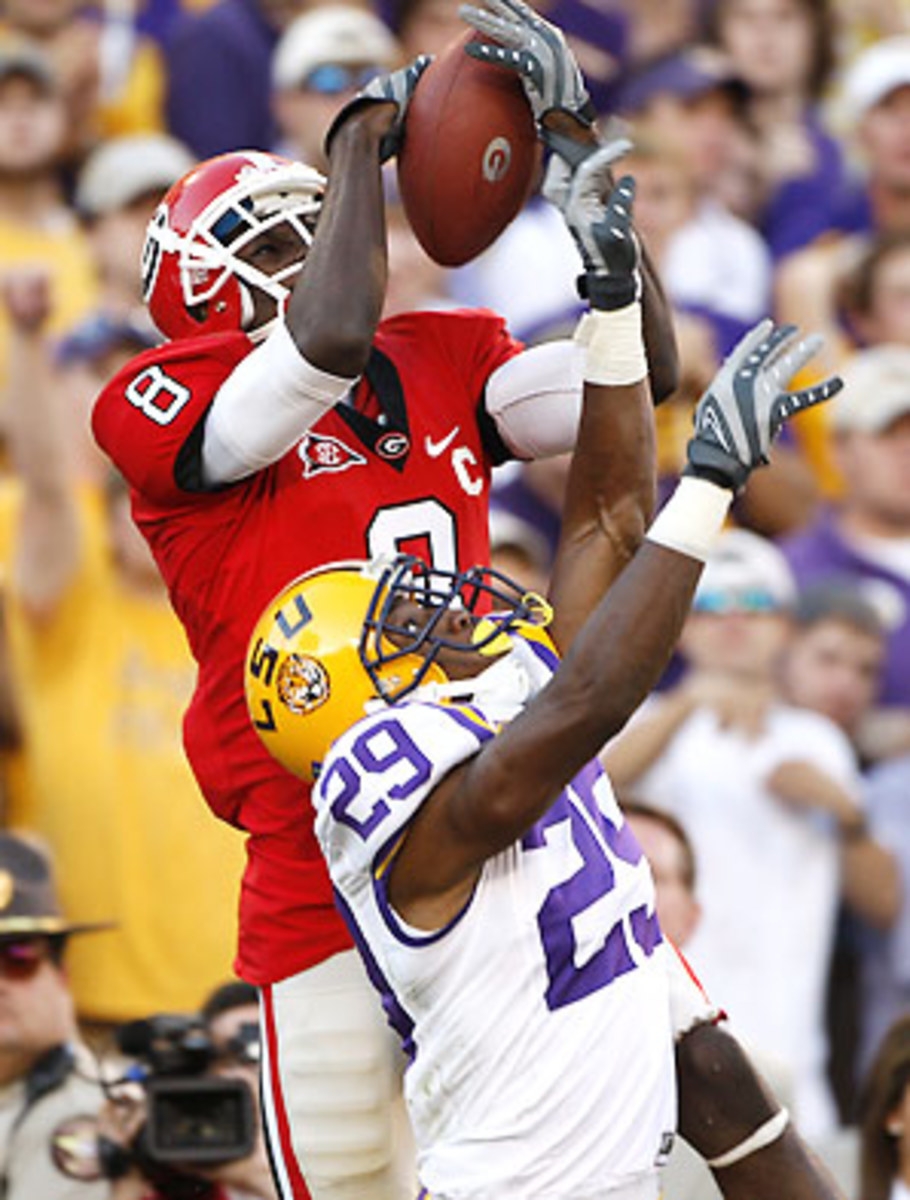
Prep for controversy: New taunting rules bound to impact big games
At some point in the next 10 years, it's going to happen.
A player will break free for what appears to be a game-winning touchdown. Maybe a conference championship will be on the line. Maybe a national championship. With no one threatening to tackle him as he crosses the 5-yard line, the player will begin pointing in the direction of his opponents. He'll keep pointing until after he crosses the goal line.
A flag will fly. The touchdown will be erased. One fan base will go berserk. Talk radio lines will light up for days. Talking heads will debate the call ad nauseam.
It won't happen this season, because the NCAA's newest anti-taunting rule isn't scheduled to take effect until the 2011 season. But coaches and officials are already preparing for the day when a taunt can pull six points off the board. At conference meetings this past spring, officiating coordinators met with coaches to soothe fears and to provide talking points so coaches can ensure their players don't do something that will cost their team a touchdown in the future.
A taunting call on a scoring play already carries a fairly significant penalty. The 15-yard penalty forces a team to kick off from the 15, which usually gives an opponent the ball near midfield. From there, all but the most hapless of offenses can maneuver into field goal range. But next year, the penalty will be more severe. If a player high-steps, points, makes the throat-slash gesture or unnecessarily dives before he crosses the goal line, he'll be flagged, and his touchdown will disappear. The officials will treat the taunt as a live-ball, spot foul, meaning they'll march off 15 yards from the point of the infraction.
"Taunting is pretty clear-cut," Big East coordinator of officials Terry McCauley said. "The taunt declares itself. We're always going to call that."
But does the taunt always declare itself? Georgia fans still want to know what receiver A.J. Green did to deserve an excessive celebration penalty late in the fourth quarter of last season's loss to LSU. Because Green caught the ball in the end zone, the touchdown wouldn't have come off the board under the new rule. But once officials have the power to take away touchdowns for taunts, will they use it wisely?
Doug Rhoads, the ACC's coordinator of officials, said the men in stripes don't have to make many judgment calls in cases of taunting. Most calls, he said, are not left to the officials' discretion. They're spelled out clearly in section 9-1-2 of the NCAA football rule book. "It specifies all these unsportsmanlike acts," Rhoads said. "Ninety-five percent of those unsportsmanlike acts do not require judgment on the part of the official."
Indeed, the rule book is quite specific. Pointing "the finger(s), hand(s), arm(s) or ball at an opponent, or imitating the slashing of the throat" draws an instant penalty. So does any act that simulates the firing of a weapon. So does the alteration of the stride of any unopposed ballcarrier, so forget about high-stepping.
After the description of the unsportsmanlike acts appears this key phrase: "If committed while the ball is alive, these fouls are treated as dead-ball fouls." That will be true for this season. But beyond 2010, they'll be live-ball fouls.
Rhoads studied the more than 14,000 plays worked by ACC officials in 2009 and discovered only six instances in which a touchdown would have been taken away. That doesn't sound like much, but multiply that by 11 FBS conferences. Unless coaches can educate their players, several games each week will feature touchdowns nullified. At some point shortly after the rule goes into effect, one of those will be a critical score late in a game.
Rhoads knows this, and he and his fellow coordinators worked this offseason to begin the education process for coaches and for officials so that when the rule does take effect, it doesn't alter the outcome of games. For the officials, coordinators have stressed that if there is any doubt as to whether the player crossed the goal line, they should err on the side of counting the touchdown. "When in question, he's in the end zone," said Rhoads, who believes such calls also should be eligible for video review. "You don't want a live-ball foul taking a score away when it's hazy."
So far, coaches seem to be on board. "It's absolutely the correct thing," LSU coach Les Miles said. "If a guy is wildly taunting his opponent, it's a spot foul and it goes back 15 yards. It's a great rule."
We'll have to wait a season to learn what the first coach who loses a touchdown to a taunt says, but get ready for controversy. Because the second a touchdown comes off the board at a crucial moment in a critical game, the new rule will be the only thing anyone wants to talk about.





